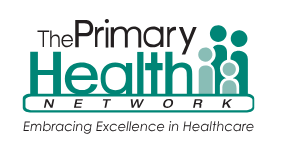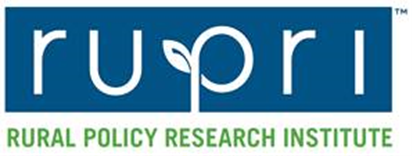The latest report from the National Advisory Committee on Rural Health and Human Services describes disability prevalence in rural areas and federal programs for people with disabilities. The paper outlines key considerations for rural disability services, including access, Medicaid and Medicare coverage, workforce, and telehealth and technology.
New White Paper Details Quality Improvement Through Swing Bed Utlization

Stroudwater has released a new brief detailing how Critical Access Hospitals (CAH) utilization of the swing bed program increased quality scores.
A CAH in southcentral Kentucky needed to improve its risk-adjusted mobility performance scores for its swing bed patients, and their rehabilitation and nursing staff needed to work as a team in motivating their swing bed patients to achieve their mobility goals, heal, and return home.
To learn how we helped this CAH improve its risk-adjusted mobility score by over 20%, please click here.
Recently, we published a white paper detailing how CAHs can enhance their role as providers of high-quality, community-centered care through proactive quality reporting and strategic use of data insights.
To read the full white paper, please click here.
Pennsylvania FQHC Network Unveils ‘Buddy Bench’ Initiative

From the Record-Argus
In collaboration with Buhl Park, Primary Health Network (PHN), based in Sharon, PA, recognizes that loneliness and isolation can profoundly affect individuals’ mental and emotional well-being and have answered with a call of action by implementing a new initiative, the Buddy Bench, which debuted at Buhl Park Friday.
The first of the Buddy Benches, facing Lake Julia at Buhl Park, was dedicated by Dr. George Garrow, CEO of the Primary
Health Network, and Tom Roskos, executive director of Buhl Park, with the idea that connections, even something as simple as sitting with someone, shows compassion and empathy, something Garrow believes is instrumental in today’s world.
“Our mission at Primary Health Network has always been to support the health of the community in every sense of the word, and this initiative is a testament to that commitment,” he said.
In introducing the concept of the PHN Buddy Bench project, Garrow said it is “a simple, yet powerful idea aimed at addressing the challenges of loneliness and isolation that many in our community face,” one of the many community initiatives under the auspices of PHN.
“Loneliness can be a heavy burden, often affecting one’s mental and emotional well-being that are not always physically visible, but deeply felt,” Garrow said. “This Buddy Bench is more than just a place to sit, it is a symbol of our collective effort to create spaces where people can connect and support one another.
“We are fostering an environment where everyone feels that they belong and that they are valued,” Garrow said. “I am reminded of the timeless wisdom of Mr. Fred Rogers, a beloved figure who deeply understood the power of human connection.”
In citing Rogers’ quote, “The greatest gift you can ever give is your honest and true self,” Garrow said Rogers’ sentiment reflects the PHN mission “that every person deserves to be seen, heard and valued. I encourage you to reach out to those around you, offer a kind word or simply be present,” as small gestures could provide a big impact.
As a way to make conversation starters, Communication Rock Gardens that include simple ice breaker questions were situated in front of the bench, that way if someone does see the bench is occupied, they can join the person or people on it and engage in easy conversation.
“Buhl Park is a gem in our community, where nearly a million people visit each year,” Roskos said, “and the opportunity for folks to get away, sit on a bench and start a conversation with somebody they may or may not know, to help combat this issue” of the feelings of loneliness and isolation is stepping in the right direction.
Roskos praised Garrow and PHN for their work, saying they are “a symbol for thoughtfulness and caring” in communities around the region.
While it is the first of the Buddy Benches, Primary Health has said this is not going to be an isolated outreach, instead, plans to expand to other communities served by PHN.
Another community outreach PHN is working on a literacy project, adding Little Free Libraries to communities where they offer clinical services.
Additional information about Primary Health Network, the Primary Health Network Charitable Foundation and its initiatives, visit primary-health.net.
CDC Oral Health Leadership Announced

The Centers for Disease Control and Prevention (CDC) Division of Oral Health (DOH) announced Gina Thornton-Evans, DDS, MPH has been selected to serve as Director of the Division of Oral Health in the National Center for Chronic Disease Prevention and Health Promotion (NCCDPHP).
HRSA Adds New Oral Health Resources
 The Health Resources and Services Administration (HRSA) has added two new oral health resources to their website as part of the “A Healthy Mouth for Every Body” campaign. The new resources highlight the role of oral health during pregnancy and the relationship between oral health and nutrition.
The Health Resources and Services Administration (HRSA) has added two new oral health resources to their website as part of the “A Healthy Mouth for Every Body” campaign. The new resources highlight the role of oral health during pregnancy and the relationship between oral health and nutrition.
Pennsylvania AHEC SEARCH Academy for High School Students Accepting Applications
Do you have any high school students in your life? Pennsylvania AHEC Students Exploring and Researching Careers in Health (SEARCH) Academy is accepting applications for 2024. This free virtual program gives students the chance to learn about a variety of careers from health professionals across PA. Students may attend one or all three sessions, which will take place on Wednesday evenings starting in October. The oral health professionals session will be November 6th.
Medicare Drug Price Negotiation Negotiated Prices Announced for IPAY 2026 Rollout

CMS has published the negotiated maximum fair prices (MFP) for the first drugs selected for negotiation for 2026. CMS reached agreement for new, lower prices for all 10 drugs selected for negotiations, which will be effective on January 1, 2026.
The following materials are available to support outreach:
- An updated IPAY 2026 fact sheet (email version below, also posted to the newsroom and published as a PDF)
- A plain language infographic about the program and the 10 price discounts
- A social media toolkit that can used to amplify this announcement: https://www.cms.gov/files/zip/social-media-toolkit-negotiated-prices.zip
CDC Publishes Collaborative Study on Alzheimer’s Disease, Related Dementia Diagnoses Among American Indian and Alaska Native Adults

The CDC recently released a collaborative study with the Indian Health Service (IHS), and the Alzheimer’s Association providing the first estimates of dementia among American Indian and Alaska Native (AI/AN) populations who receive health care services through IHS. This study was published in the Journal of the American Geriatrics Society.
The study found 14% of IHS patients diagnosed with Alzheimer’s disease and related dementias (ADRD) were early-onset cases (below age 65). However, globally, only 9% of dementia patients have early onset of the disease.
Because the study is limited to AI/AN adults who used IHS health care, the findings cannot be generalized to the entire AI/AN population. The researchers note the rates of Alzheimer’s disease may be underestimated due to AI/AN individuals with private insurance, Medicare or Medicaid, or another health plan are not reflected in the IHS data unless they received care at an IHS facility.
This study provides baseline data to help IHS, CDC, and other public health and tribal partners in addressing ADRD in AI/AN communities. The findings emphasize the need to implement ADRD risk reduction strategies, to screen and diagnose ADRD in younger populations, and to enhance clinical and community-based services to support AI/AN adults living with dementia and their caregivers.
As part of the National Healthy Brain Initiative (NHBI), CDC offers a Road Map tailored for AI/AN communities as they develop a broad response to ADRD. The Road Map is accompanied by a suite of resources to support AI/AN communities such as a planning guide, a dissemination guide, infographics, flyers and more.
New Brief Published: Changes in Rural Pharmacy Presence 2023
 Fred Ullrich, BA; and Keith Mueller, PhD
Fred Ullrich, BA; and Keith Mueller, PhD
This data brief continues the RUPRI Center’s series of reports exploring the availability of retail pharmacy services in rural areas of the U.S. It provides information on rural communities that have kept, lost, or gained a retail pharmacy between 2018 and 2023.
Read the full report here.
Additional products:
- Update on Rural Independently Owned Pharmacy Closures in the United States, 2003-2021
- Rural and Urban Pharmacy Presence – Pharmacy Deserts
For more information, contact
Keith J. Mueller, PhD; keith-mueller@uiowa.edu
Director, RUPRI Center for Rural Health Policy Analysis
University of Iowa College of Public Health
Pennsylvania Action Coalition (PA-AC) Brand Refresh: Introducing the Pennsylvania Nursing Workforce Coalition
We are excited to announce that as outcome of the thorough strategic planning process that we engaged in over the past several months, we have a new 5-year strategic plan and we will be refreshing our brand as the Pennsylvania Nursing Workforce Coalition (PA-NWC)!
A few notes about this change:
- We are calling this a “brand refresh” and not a “rebrand” because we want to be clear that the components of our structure are not changing. This includes the PA-NWC’s functioning as a program of the National Nurse-Led Care Consortium (NNCC), and our Advisory Board structure as a coalition with organizations as members and individual representatives.
- We look forward to strengthening our position as Pennsylvania’s Nursing Workforce Center. The PA-AC has “housed” Pennsylvania’s Nursing Workforce Center since 2016 when we became a part of the National Forum of State Nursing Workforce Centers. The “brand refresh” is just making this work more front and center.
- The PA-NWC will continue its strong relationship with the Future of Nursing reports and the Future of Nursing Campaign for Action. Our feedback expressed that one of our core strengths was our anchor in the national framework of the Future of Nursing’s goals and that our participants continue to feel connected to and inspired by its principles. Many other nursing workforce centers across the country are simultaneously their state’s Action Coalition and workforce center.
Learn more about our new strategic plan and the process that we followed at the link below! Stay tuned for additional materials and communications as well. We are excited to work with you in our new chapter as the PA-NWC
